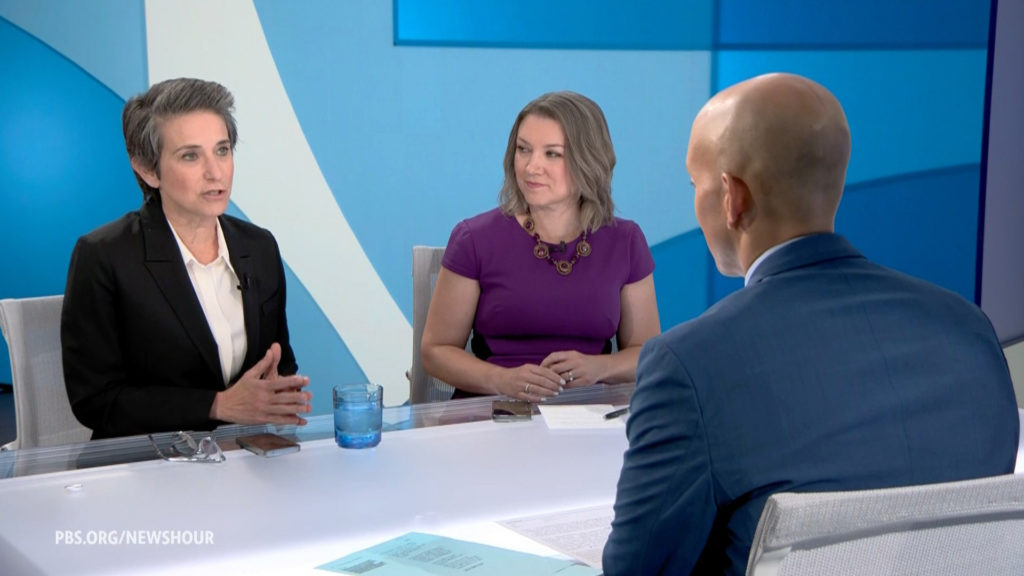Originally by Katy Abrams at www.insightintodiversity.com

Project 2025: Mandate for Leadership: The Conservative Promise, is a 900 plus page outline written by the Heritage Foundation, a conservative think tank that influences U.S. public policy. It is technically a nonpartisan document, though it is led by two former Trump administration officials and is widely accepted as a conservative platform of initiatives the group deems are necessary for the next conservative administration to enact. The document provides its position on nearly every aspect of our government, including the judicial system, the Department of Health and Human Services, Homeland Security, the Department of Education, and more.
We spoke with Paulette Granberry Russell, JD, president of the National Association of Diversity Officers in Higher Education, to get her thoughts on how Project 2025 suggests the federal government approach the role of the Department of Education and the impacts those positions would have on higher education.

On page 322, as part of the list of core principles by which Project 2025 feels the next presidential administration should operate, the document reads: “Enforcement of civil rights should be based on a proper understanding of those laws, rejecting gender ideology and critical race theory.” And on page 331, it suggests that the Office for Civil Rights rescind the Biden administration’s proposal that alongside “male” and “female” categories, a “nonbinary” category be added to required student data collection. How do you anticipate these positions on gender identity would affect education and/or student wellbeing?
The Biden administration has issued guidance that clarifies the expectation that protection from discrimination and harassment extends beyond the “male” and “female” binary. The inclusion of a “nonbinary” category for data collections allows the Office for Civil Rights (OCR) to monitor complaints where certain behaviors target nonbinary students, or individuals perceived to be nonbinary.
It is essential for colleges and universities to understand nonbinary student experiences, and it is just as important for state and federal regulatory entities to be aware of the complexities associated with the experiences of nonbinary students in secondary and postsecondary education. While research is limited on the experiences of nonbinary students, to the extent that data exists, we know that such students are “more likely to be verbally threatened, stalked, and sexually assaulted than their peers” (Marx, R.A., Maffini, C.S., Peña, F.J. (2024), Journal of Diversity in Higher Education, 17 (3), 330-345). Discriminatory behavior that targets individuals based on gender is currently prohibited by law.
Including a “nonbinary” category for required data collection not only allows OCR to monitor such behavior and report on it as they do for such protected categories like race, ethnicity, national origin, and gender, it also informs institutions on the importance of disaggregating data and tracking internally the experiences of nonbinary students so that they can cultivate more supportive learning environments for these students.
Another reference to civil rights falls on page 330: “[The Office for Civil Rights] should move to the Department of Justice. The federal government has an essential responsibility to enforce civil rights protections, but Washington should do so through the Department of Justice and federal courts. The OCR at DOJ should be able to enforce only through litigation.” What do you see as the potential impact(s) of this mandate for post-secondary institutions?
The impacts vary. Federal agencies, in this case the OCR, have specialized knowledge and resources that are currently dedicated to understanding the nuances of discrimination in education. The OCR is also more readily accessible to those who may not have the resources to pursue litigation, or who may find the legal system intimidating and inaccessible. The agency not only provides regulatory guidance that is often a preventive resource to institutions, it also can often resolve complaints through investigation and mediation more quickly, and relief to individuals facing discrimination or harassment may also occur more quickly.
The OCR also works proactively through issued guidance, including Dear Colleague Letters to educate institutions about compliance with civil rights and to help prevent discrimination and harassment in higher education. The agency addresses systemic issues with colleges and universities, influencing policies and practices that affect not just individuals who bring complaints, but a larger number of students. Court cases typically center on individuals’ complaints, which may not lead to widespread changes.
Having both systems in place allows for a more comprehensive approach to addressing discrimination and harassment and can also foster system change in institutions.
Project 2025 makes several references to aspects of Title IX, one of which is on page 333: “Commence a new agency rulemaking process to rescind the current Administration’s Title IX regulations; restore the Title IX regulations promulgated by then- Secretary Betsy DeVos on May 19, 2020; and define ‘sex’ under Title IX to mean only biological sex recognized at birth.” And on page 334: “The next Administration should abandon [the Biden administration’s] change redefining ‘sex’ to mean ‘sexual orientation and gender identity’ in Title IX immediately across all departments.” If implemented, how might institutions of higher education be impacted?
The impact will be significant. Currently the expanded definition provides protection for students who identify as LBGTQIA+, and the removal of those protections could lead to increased discrimination and harassment and affect current efforts in higher education to protect such students from a hostile learning environment. As noted in the research study cited earlier, absent such protections, feelings of isolation, concerns about campus safety, poor mental health outcomes, and low involvement in extracurricular activities will be exacerbated.
Legislation passed in certain states dismantling diversity, equity, and inclusion offices and programs.— legislation in line with the goals of Project 2025 — has led to the elimination of gender and sexuality centers and resources. Students will have fewer legal avenues to challenge discrimination and less protection in cases of harassment and bias.
Institutions may alter their policies, roll back protections, and eliminate programs and education resources, which could lead to varying levels of safety and support across higher education and secondary education as well.
Of particular interest in the section titled Higher Education Act is the mandate that would “prohibit accreditation agencies from leveraging their Title IV gatekeeper role to mandate that educational institutions adopt diversity, equity, and inclusion policies,” on page 352. What are the potential ramifications of this if it were enforced?
As noted by the U.S. Department of Education, “the goal of accreditation is to ensure that institutions of higher education meet acceptable levels of quality.” The elimination of accreditation agencies’ role to ensure equal access and inclusive excellence would lead to reduced accountability in addressing systemic barriers to opportunity, inequitable outcomes, reduced participation of historically marginalized groups in higher education, impact on research opportunities, reduced access to and participation in STEM fields, and less inclusive educational environments. Does that sound like a quality educational experience?
Title IV currently provides federal funding for student financial aid. Institutions have an incentive to implement programs and initiatives that support all students; if they don’t, they risk losing eligibility for federal student aid, which impacts access to education, particularly for those from marginalized and underrepresented backgrounds. Absent these incentives, colleges and universities may struggle to enroll, retain, and graduate students from these backgrounds.
If we want to foster an inclusive campus culture, if we want to recruit and retain a diverse faculty, if we want to strengthen institutional trust and support the success of all students, we must continue to empower accreditation agencies to ensure institutions of higher education meet acceptable levels of quality with respect to advancing and supporting diversity and equity.
On page 356, “Mandate” authors state that that “Congress should wind down so-called ‘area studies’ programs at universities (Title VI of the Higher Education Act), which, although intended to serve American interests, sometimes fund programs that run counter to those interests.” How would this alter the student experience and/or availability of interdisciplinary degree programs?
Eliminating area studies will reduce access to in-depth knowledge of cultures and languages both within this country and beyond its borders. This seems to be an intended goal of Project 2025, and we have seen this playbook in Florida, where students in the state university system can no longer take sociology to fulfill core course requirements.
Project 2025 further advocates that “the next Administration” Secretary of Education allocate “at least 40 percent of funding to international business programs that teach about free markets and economics and require institutions, faculty, and fellowship recipients to certify that they intend to further the stated statutory goals of serving American interests.” How is this not a form of a forced ideology litmus test or loyalty test?
The elimination of area studies will limit students’ understanding of complex global issues and cultural competencies, all of which are important in a globalized world and workforce. That may be the goal of Project 2025, but such a goal is inconsistent with what should be the 21st-century mission and values of higher education.●
Read the Original Story





